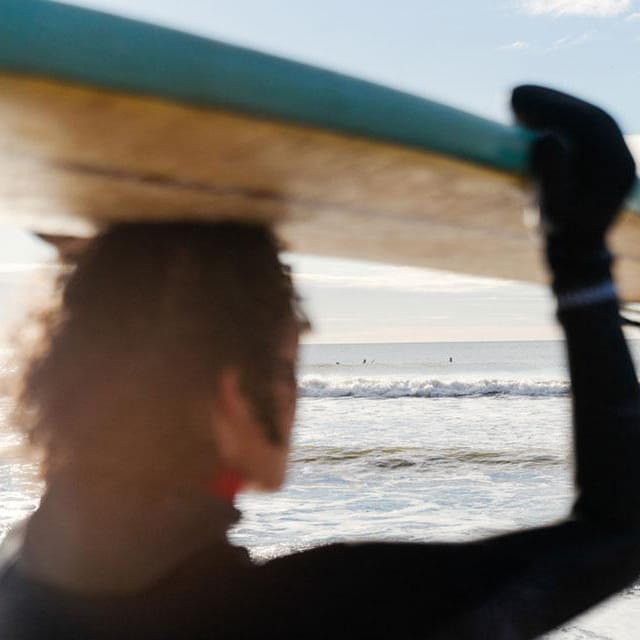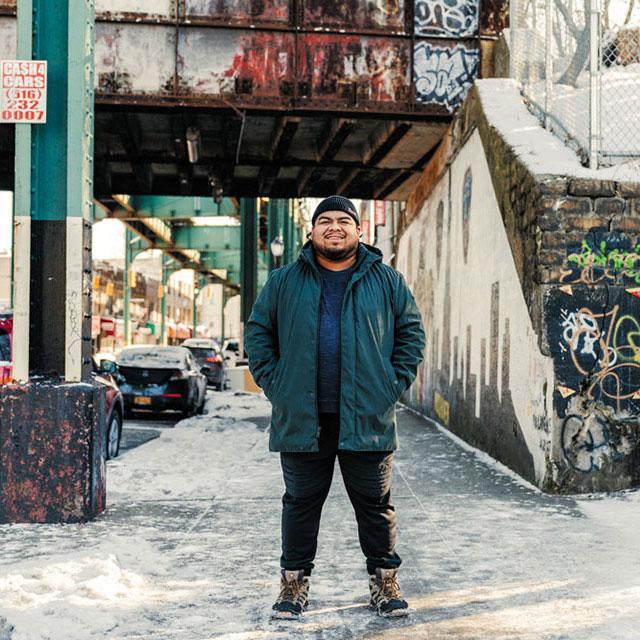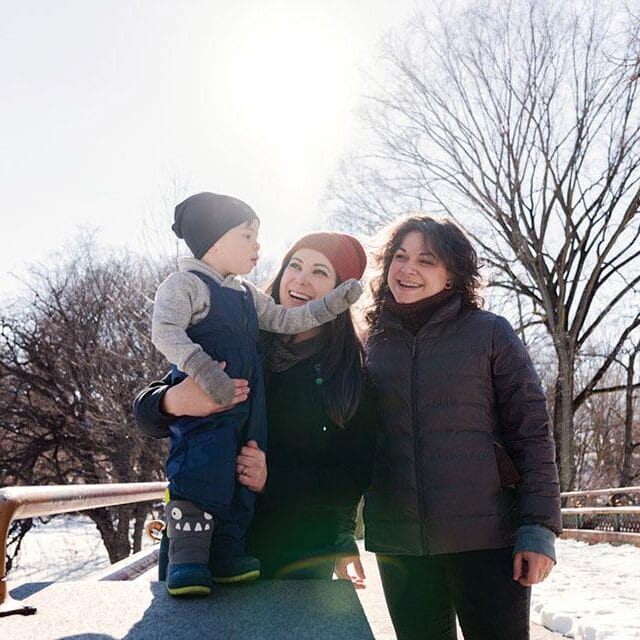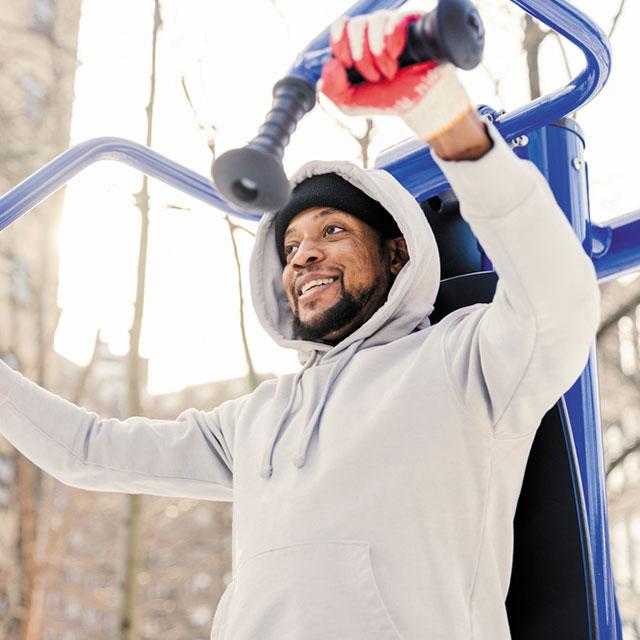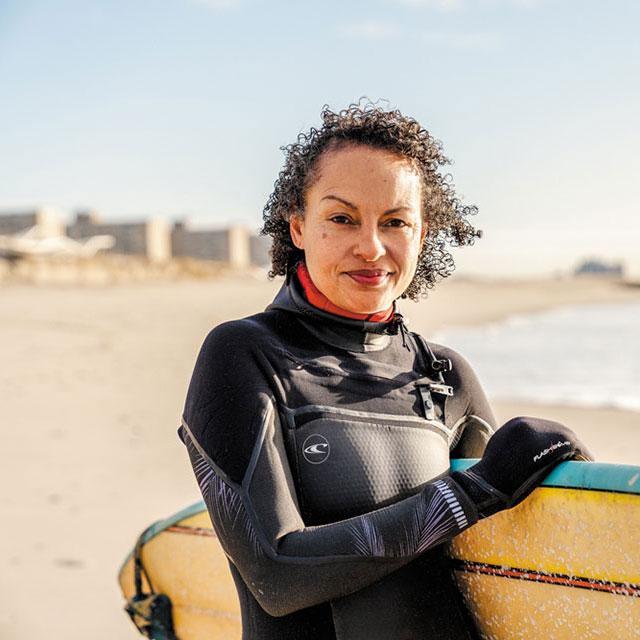A Bronx-based nurse on how parks helped her endure the pandemic.
By Lisa W. Foderaro | Photographs by Tara Rice
Published May 18, 2021
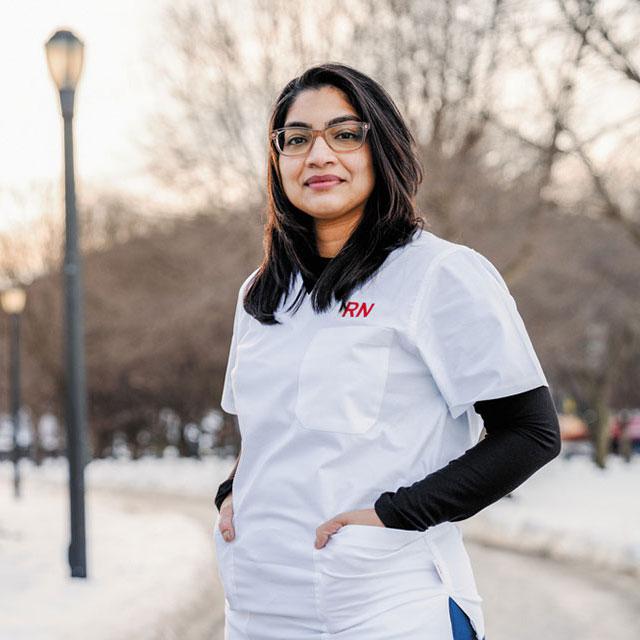
This year, nature was Rowshanara Rafique’s solace. She’d always been an avid hiker, venturing into the Hudson Valley with friends on weekends, visiting places like Bear Mountain and Harriman State Park. But as the pandemic tightened its grip on New York City in the spring of 2020, Rafique, a registered nurse, started working 16-hour shifts at her hospital. She didn’t have enough time for weekend getaways, and at any rate it didn’t seem safe to leave the city. So she began to rely on the nature that flourishes in her native Bronx.
She hoped that breathing in fresh air would keep her lungs healthy. And the peace she found in the parks soon became an important counterweight to her night shifts in the acute medical surgery unit at the hospital, which was swamped with very sick patients.
“It was very calming,” she said of her near-daily walks through Van Cortlandt Park. “In March, it was cold, but you saw things blooming and the sun was on your skin. It’s just so nice to be in nature and feel something living. I didn’t hear any codes going off or coworkers asking, ‘Can you get me this, can you get me that?’ Those walks gave me strength. I felt, ‘Okay, I can do this.’”
Before COVID-19 upended life in the city, she would go months without seeing a patient die, since her unit handles relatively mild cases and routine surgeries. But last year her unit became overwhelmed, and death became a constant, frightful reality. One patient in particular still haunts her, a woman in her late 40s whom Rafique cared for late last spring. She recalls checking on the patient and then calling the woman’s husband and daughter to say she was doing fine—breathing normally and able to walk on her own to the bathroom.
Ten minutes later, a coworker told Rafique the patient was crashing. Her pulse oximeter reading had plunged, and a doctor agreed she needed to be placed on a ventilator. That required a spot in the intensive care unit, but only one room was available, and three patients needed it. Rafique made an impassioned plea for her patient to get the bed, and the doctor approved.
The next day, she arrived at work and went to check on her patient, only to find the room empty. The patient had passed away overnight. Rafique was crushed. Many months later, relating the episode brings her to tears.
“My manager was like, ‘You did good for her,’ and I was like, ‘Yeah, but she passed and those two other patients passed,’” recounted Rafique, her voice catching. “The doctor called the family because he saw I was too distraught to speak to them.”
Rafique lives with her mother in the Bronx. On top of the stresses of her job, she worried constantly about her mother’s health. Because Rafique was exposed to COVID-19 day in and day out, she carefully orchestrated time in the kitchen to avoid close contact with her mother.
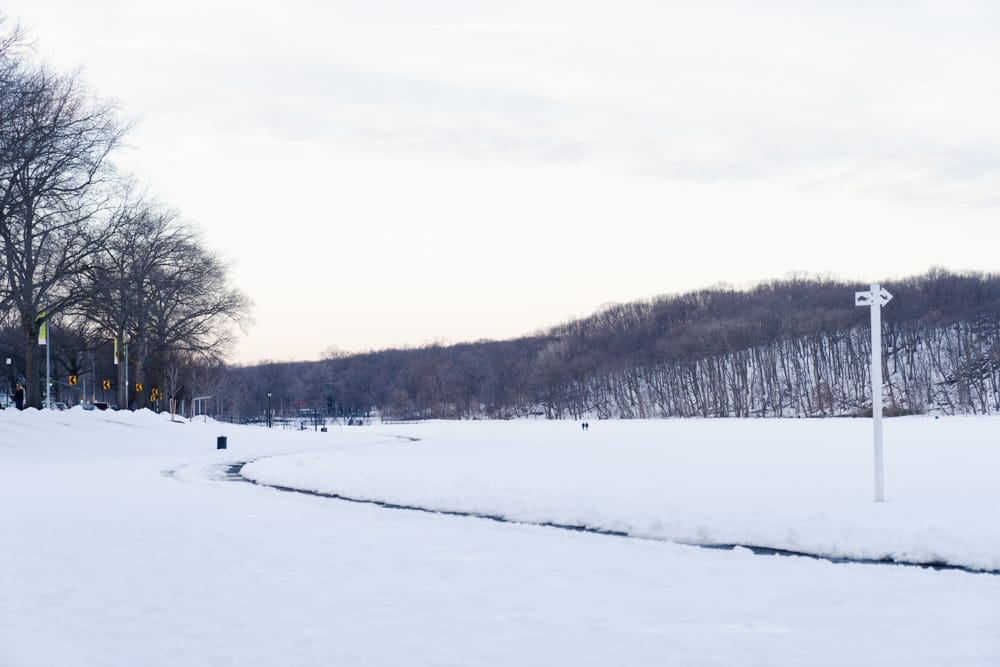
Rafique found that spending time in nature was remarkably healing. She’s become a regular on the 40-minute bus ride from her own neighborhood to Van Cortlandt Park in the northwest Bronx. She usually walks the trail around the park’s parade ground, where residents play cricket, soccer, and baseball on weekends.
She has also taken to volunteering on her days off in parks across the Bronx, picking up trash, removing invasive species, and planting bulbs. Throughout this devastating year, Rafique says volunteering and spending time in her local parks have kept her grounded and given her hope. “It’s the opposite of what I saw and experienced at the hospital,” she said. “It was bringing life.”
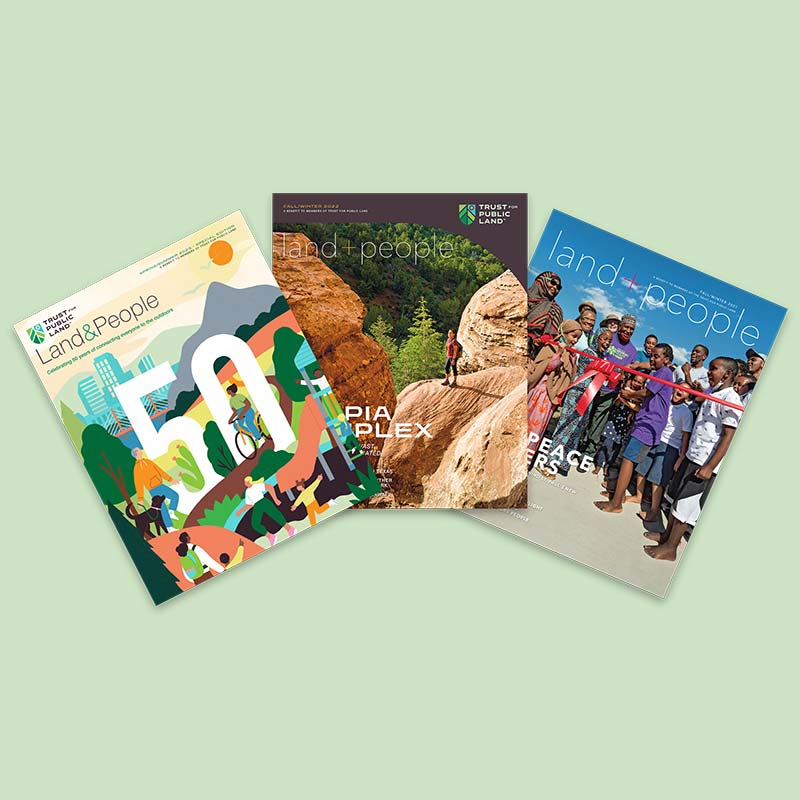
Donate to become a member, and you’ll receive a subscription to Land&People magazine, our biannual publication featuring exclusive, inspiring stories about our work connecting everyone to the outdoors.

